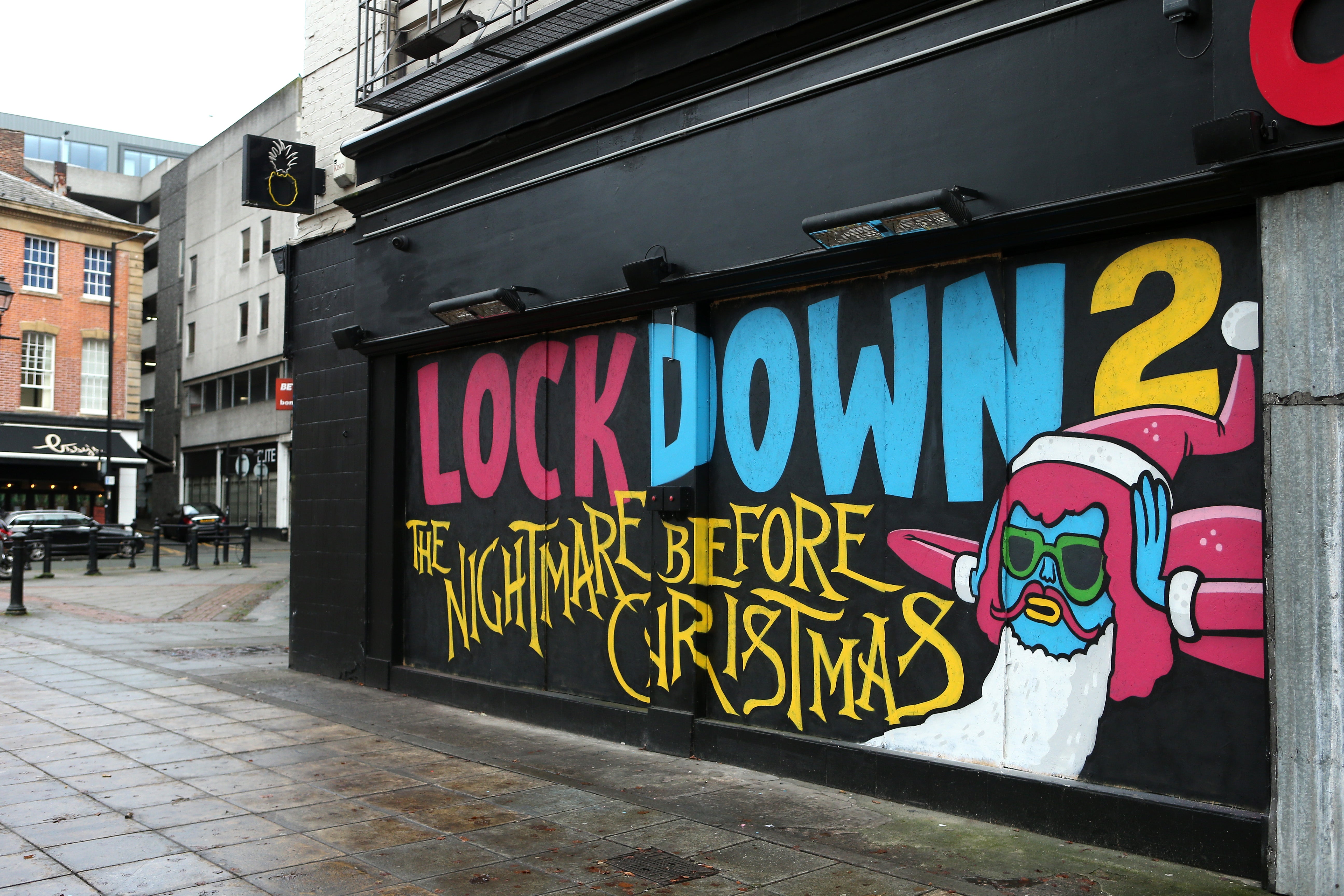Since Covid cast its evil spell over our bustling cities, I can finally see the appeal of my ‘boring’ hometown
As a teenager, Jenny Eclair was desperate to escape the place she grew up in on the northwest coast. When she visited it this year, however, she saw it in a new light


This past year has made us re-evaluate many things, including I suspect the choices we’ve made and the circumstances we’ve ended up in.
When I was younger I couldn’t wait to get away from the town I “mostly” grew up in. I say “mostly” because I moved around quite a lot up until the age of eight. However, once my father left the army, I spent the next 10 formative years of my life living in what I considered to be a “boring” town on the northwest coast.
I couldn’t wait to get away, first to drama school in Manchester and then to London where, in real life, Piccadilly Circus looked exactly like the postcards.
Since the virus has cast its evil spell over my beloved capital city and London is no longer the throbbing metropolis she was, I have returned on a number of occasions to my old hometown and seen it with fresh eyes.
“This is very nice,” says my driver, who is taking me from Manchester, where I have been filming a new TV series for Channel 4, to wave at my mother in her nursing home.
It’s my day off and with Manchester on full lockdown, spending three hours sitting fully masked right at the back of a people carrier with a screen between myself and my socially distanced driver, is preferable to going for a run through the distressingly empty streets that surround my hotel. In fact, the only time I tried jogging in Manchester, I ended up sobbing outside the Opera House, home to some of my “once upon a time before coronavirus” gigs.
In some respects, the centre of Manchester has changed too much for me to get overly nostalgic about it. I found the street where I first performed but not the wine bar, the Swinging Sporran club has disappeared and, of course, the old Arndale Centre was bombed by the IRA decades ago. The new Manchester is not my old Manchester. Which is a good thing for everyone considering that “my” late Seventies Manchester looked like a nicotine-stained Lowry painting.
My old hometown on the other hand, just 50 or so miles up the coast, has changed very little. It was always pleasant. Inevitably when I was a teenager I couldn’t really see the point in “pleasant” and the place used to make me itch. The fact that I had an incredibly happy childhood there and enjoyed a healthy love/hate relationship with my schools, both primary and secondary, was beside the point. It was a place to escape from.
Returning as a 60-year-old, even for a short amount of time, I’m surprised by how appealing the place is, possibly because it’s a very “middle-aged-plus” kind of place, where everyone seems to have a dog and people are out walking along the seafront. The pubs and restaurants are shut, but there seems less damage to the high street than in the city centres – very little is boarded up and abandoned.
When all 20 programmes of the Channel 4 series are finally in the can, I have a three-day break before returning to Manchester to record five episodes of Countdown. There’s no point slogging all the way back to London only to come more or less straight back, so I spend the break at my mother’s flat, sorting her mail, making sure the boiler’s ticking over, and being close enough to window wave every day.
Via some complicated communication involving my sister and an old school friend of hers, I manage to buy a bike so that I can make the trip to the home without using public transport. After a series of convoluted texts, my sister’s old friend meets me on the street corner, behind a pub I used to illegally drink in when I was 16. It’s like a drug deal – only rather than narcotics, it involves a sit-up-and-beg two-wheeler, complete with helmet, basket and lock.
As I cycle along the promenade to visit my mother, filling my lungs with good northern sea air, I see my old town in a new light. They’ve created a fabulous exercising promenade along the seafront which stretches for several cycle-safe miles and is stunningly well done.
Everywhere there are memories – the man-made lake we used to walk around with our cousins on Christmas Day, my girls-only grammar school (now luxury flats), and the playing fields where I would do anything to skive off hockey.
I cycle past roads where friends of mine used to live and I remember their names as if calling a register.
Most of us moved away, but not all of us. On other visits home, I have bumped into women who were once in my school year and under their weird middle-aged disguises, I can always recognise the 12-year-olds they used to be.
I used to think they were mad not to leave this place. Now, I’m not so sure.




Join our commenting forum
Join thought-provoking conversations, follow other Independent readers and see their replies
Comments